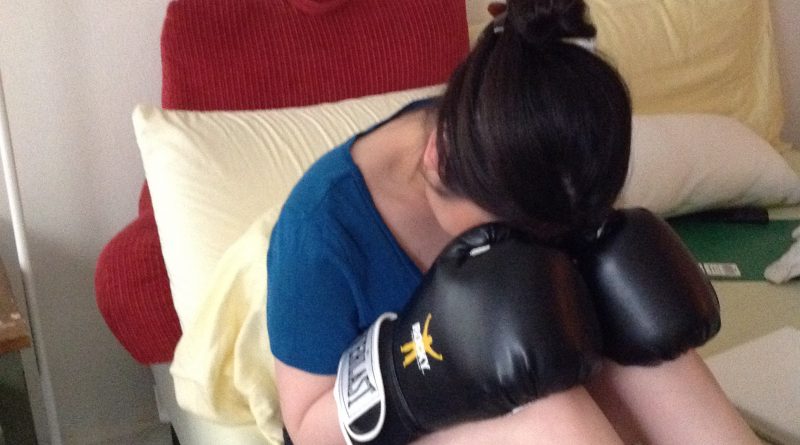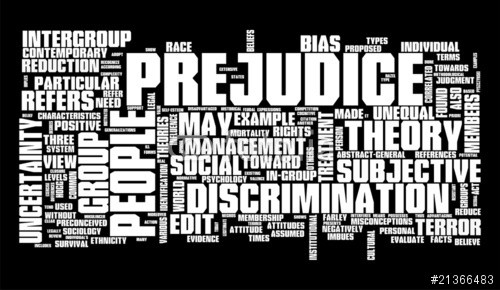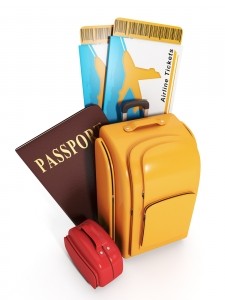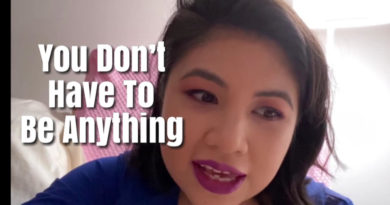Asian American Mental Health: Confusing Doing Well With Feeling Well

I asked my parents for help my senior year of high school. Back then, I didn’t know much about mental illness but I knew the word “depression.” My parents responded by asking our Korean pastor for help because he was also a doctor; we attended a Korean-Filipino church. The pastor said, “This is just teenage angst. It will go away.” I asked my mom recently why she did not believe I was depressed all those years ago. She said she could not understand how someone could be depressed and do so well in school. Doing well is not the same thing as feeling well.
May 10 is Asian American Pacific Islander Mental Health Awareness Day. While there are many obstacles that can keep Asian American families from understanding mental illness like language barriers, cultural communication gaps, practitioners who use Eurocentric patient models, and the “Model Minority Myth,” one overlooked reason is because we conflate feeling well with doing well. A depressed person can struggle academically and socially—that is true among people of all racial backgrounds. But, sometimes, it’s also true that a depressed person can function well on the outside. While Asian Americans experience mental illness at the same rate as the general population (26%), we use psychological services less than Caucasian Americans. The American Psychological Association says that Asian-American college students are far more likely to experience suicidal thoughts than their White counterparts.
I am an only child but I was fortunate to grow up with fourteen cousins. All of my relatives lived within five minutes of each other. Like many Filipino families, our lives revolved around faith, family, and food. While I had a very happy childhood, I had rare, fleeting moments of depression. The earliest episode I can recall is when I was eight years old. On the way to school, I suddenly had this feeling of crushing emptiness. I wondered: Why do we go to school? Why do people work? What is the point of anything in life? When I reached high school, those moments of depression were more frequent and longer—lasting anywhere between hours or weeks at a time. When I got depressed, I had crying spells, difficulty concentrating, and suicidal thoughts. Just as inexplicably as the depressive episodes came, they ended and were replaced with periods of genuine stability and happiness or sometimes, hypomania. During hypomania, I could not sleep and sometimes did things like finish a painting that takes four weeks in four hours.
What made me finally get a diagnosis? When I was a freshman in college, a friend who was diagnosed with bipolar disorder completed suicide. After a week of grieving and missing classes, I realized I might have bipolar disorder too. My friend was the only one who really “got” me. I dragged myself out of bed. I went to the library, researched bipolar disorder, and recognized half of the symptoms in myself. Determined to get help, I walked myself to the campus mental health center. The campus psychiatrist immediately diagnosed me with bipolar 2. I was relieved because I no longer had to fight a nameless, faceless enemy. But I was also scared of what my parents would think of me: Would they think I was weak? When you come from an interdependent culture, as many Asian cultures are, your parents’ approval matters. I loved my parents. But I knew that staying alive was far more important than anyone’s opinion of me.
I asked the psychiatrist to call my parents and explain it to them. I nervously sat by the phone for hours because I did not know the exact time the doctor talked to my parents. My parents called me back. I don’t remember the words they said but what I do remember is that they drove three hours to visit me that weekend.
My parents did come around. They read books on bipolar disorder and talked to several therapists. Things did not get better right away, but the diagnosis was the key to saving my life. It was a long, challenging road to wellness filled with therapy, taking prescribed medications, faith, and building a support network of family and friends. (I say wellness—not “recovery”—because bipolar is a chronic disease.) I also developed creative strategies for being productive during depression. I graduated cum laude from Northwestern University with two majors. Today, my mom tells me she is proud of me. She says my greatest accomplishment is when I got help for my bipolar disorder.
I am aware of how blessed I am to have my family’s support; I know not everyone does. In my next post, psychologist Lilian Shin and I discuss how patients and practitioners can help Asian American families understand loved ones with mental illness.
Related:
5 Tips: How Asian Americans and Mental Health Professionals Can Build Family Support
MSNBC Documentary on Asian American Women and Mental Illness (featuring my life) by journalist Kerri Pang





Pingback: Asian American Mental Health: Confusing Doing Well With Feeling Well | Slantpoint Democrat
Pingback: Asian American Mental Health: Confusing Doing Well With Feeling Well – My Blog
Pingback: Asian American Mental Health: Confusing Doing Well With Feeling Well – Total Wellness Daily
Pingback: Asian American Mental Health: Confusing Doing Well With Feeling Well – Huffington Post – Buzz News Online
Pingback: Asian American Mental Health: Confusing Doing Well With Feeling Well – Huffington PostAll Breaking News | All Breaking News